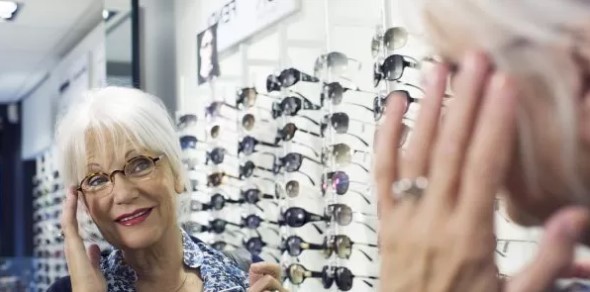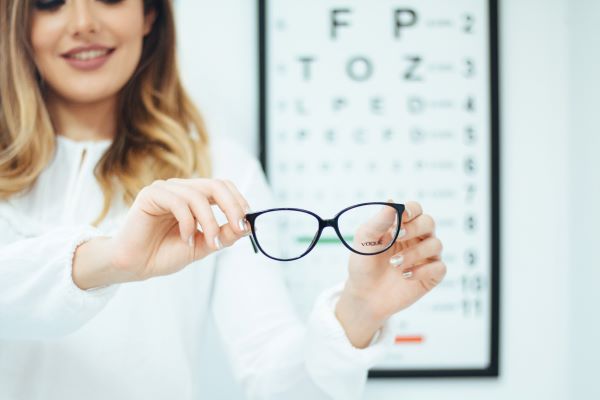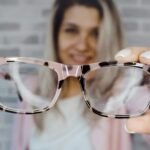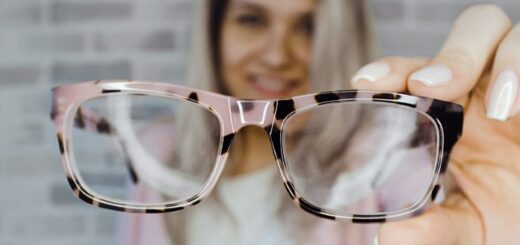It’s easy to say glasses
Table of Contents
We often hear about optics and, if we wear glasses, we know that the optician is the professional who will help us understand which ones are best for us. But have you ever gone deeper to better understand what we are talking about? No? Let’s do it together then
What is Optics?
Optics is the science that deals with the genesis and propagation of light, the changes it undergoes and produces and other phenomena closely associated with it. There are two main branches of optics, physics and geometry. Physical optics is primarily concerned with the nature and properties of light itself. Geometric optics has to do with the principles that govern the image-forming properties of lenses, mirrors, and other devices that use light. It also includes optical data processing, which involves manipulating the information content of an image formed by coherent optical systems.

Originally, the term optics was used only in relation to the eye and sight. Later, as lenses and other devices to aid vision began to be developed, these were naturally called optical instruments and the meaning of the term optical eventually expanded to cover any application of light, even if the final receiver is not the eye. but a physical detector, such as a photographic plate or a camera. And this is just the beginning: let’s answer another question that might be important to us.
Why do I need glasses?
Let’s start by saying that there are different types of lenses in optical frames for various activities related to lifestyle or vision problems. The glasses not only improve your eyesight, but also help you see clearly in different specific activities such as reading, driving or using the computer. Most people with vision problems find that their eyes cannot focus light where they should. Eyeglass lenses change the direction of light rays entering the eye in order to properly focus objects on the retina in the eye. Always remember to have your eyes checked regularly by your eye doctor, a certified optometrist, or have an ophthalmic examination to maintain healthy vision.

The types of lenses that fit glasses
DISTANCE LENSES:
They are the lenses for correcting the vision of people suffering from myopia (when distant objects appear blurry). Particularly suitable for driving, jogging or running.
READING LENSES:
They are vision correction lenses for people suffering from presbyopia or farsightedness which usually occur in old age where people cannot see things closely. These devices have optical magnifying powers that are ideal for reading or computer use.
BIFOCAL LENSES:
They correct vision for vision problems both near and far. There are also special lined D-Bifocal lenses that have a visible D segment at the bottom of the lens that helps differentiate between the two distinct optical powers. These types of lenses are ideal for people who frequently have to use the computer for data or detail entry or who wish to have a single pair of glasses for different visual needs.
PHOTOCHROMATIC LENSES:
These lenses are ideal for those people who have vision problems and who often drive long distances. These lenses change their color transition or become darker in bright sunlight or otherwise act as sunglasses and then change the color transition back or become clear in low light or otherwise act like normal eyeglasses.
But this is only the basis: optics and eyewear have evolved a lot, so much so that there are some convenient “additions” to make viewing even more comfortable.

Optical accessories for the lenses of your glasses
Ultraviolet (UV) Coating: This is a lens coating that serves to block harmful ultraviolet rays. It also protects your eyes when driving on an all too bright sunny day.
Anti-Reflective Coating (AR): It is also a special lens coating that is useful for reducing the reflection of light on the glasses. The anti-reflective coating on the goggles also reduces daytime glare and the night starburst effect that is created around a car’s headlights.
Scratch protection: Scratch protection or scratch coating is recommended for plastic lenses or people who use glasses in a distracted manner.
Optics and eyewear are constantly evolving. Always keep yourself informed so that you can find new solutions suitable for you!


















